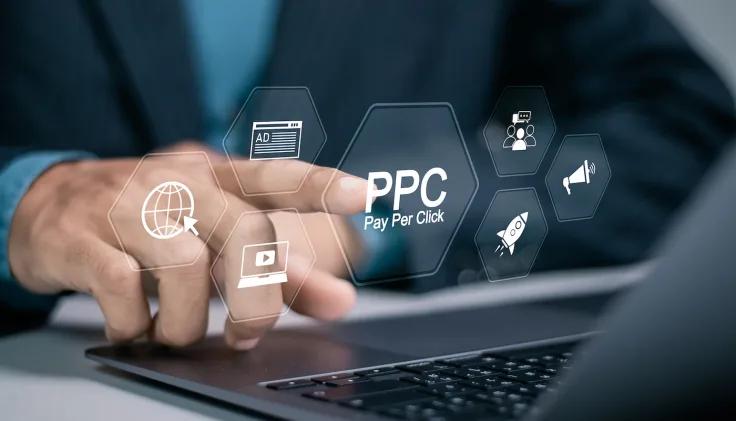Understanding White Label PPC Management for Modern Businesses
White Label PPC Management has become one of the most powerful solutions for businesses that want to scale their digital marketing results without building an in-house advertising team. In a competitive landscape where pay-per-click advertising evolves almost weekly, companies—especially those focused on ranking higher on search engines—need expert support that delivers precision, data-driven decision-making, and consistent performance. That’s exactly where white-label PPC services step in.

This model allows agencies, consultants, and growth-focused businesses to offer professional PPC services under their own brand name while relying on specialists who manage the campaigns behind the scenes. It’s efficient, cost-effective, and structured to help businesses generate leads faster with fewer risks.
Why White Label PPC Management Matters in Today’s Search-Driven World
For businesses that want to strengthen their search engine visibility, White Label PPC Management plays a fundamental role in filling operational gaps while elevating performance quality. As search behaviour evolves, the paid advertising ecosystem demands deep expertise—understanding bidding strategies, keyword patterns, advanced audience segmentation, conversion tracking, and platform-specific optimizations.
White-label PPC is not just outsourcing; it’s a partnership model that allows businesses to expand their service offerings while still maintaining ownership of the client relationship. This blend of control and expertise makes it a powerful asset for scaling sustainably.
1. A Cost-Effective Path to High-Quality PPC Execution
Building an in-house PPC team requires time, training, salaries, tools, and ongoing experimentation. For most growth-focused businesses, this investment is not practical. Through White Label PPC Management, companies gain immediate access to specialists who already understand platform algorithms, seasonal search trends, and conversion-focused campaign structures.
This eliminates unnecessary spending and significantly speeds up results.
2. Helps Deliver Faster & More Accurate Search Visibility
Paid search is one of the quickest paths to ranking visibility, especially when organic SEO efforts need time to mature. Effective white-label PPC ensures high-quality keyword targeting, compelling ad creatives, and optimized landing pages—helping businesses appear in front of ready-to-buy audiences instantly.
With immediate impressions, clicks, and lead flow, businesses strengthen both brand presence and revenue potential.
3. Allows Companies to Scale Their Offerings Smoothly
When businesses start gaining more clients or expanding service demand, maintaining quality becomes challenging. This is where white-label support becomes a strategic advantage. Without hiring additional internal staff, businesses can take on more projects with full confidence that delivery quality remains consistent.
4. Expertise Backed by Data, Not Guesswork
Professional PPC teams rely heavily on real-time analytics, A/B testing, and platform intelligence. This ensures:
Better budget allocation
More optimized bidding
Higher conversion rates
Improved ROI
Better alignment with search intent
Such continuous monitoring often leads to faster lead generation and long-term customer growth.
Core Components of an Effective White Label PPC Management System
1. Competitor & Keyword Intelligence
A strong PPC foundation begins with understanding competitors, search patterns, audience behaviour, and keyword cost forecasts. White-label PPC providers dig deep into these insights to ensure the campaign structure is strategically aligned with real-world user intent.
2. Structuring Campaigns for Maximum Impact
From ad groups to negative keywords, each component must work cohesively. Proper structuring lowers costs, increases ad relevance, and boosts Quality Score—all essential for search engine ranking visibility.
3. High-Intent Ad Copywriting
Ad copy in PPC plays a critical role in the user's decision to click. Professional white-label teams craft messages that resonate emotionally and logically, focusing on benefits, urgency, clarity, and trust.
4. Advanced Tracking & Analytics
To improve campaigns over time, every click must be tracked. White-label services ensure:
Conversion tracking
Heatmap insights
Landing page performance monitoring
Google Analytics & Tag Manager alignment
5. Continuous Optimization
Optimization includes refining keywords, adjusting bids, improving landing pages, and updating ad variations. This step is ongoing and ensures campaigns stay profitable even as market conditions change.
6. Transparent Reporting
White-label PPC professionals deliver reports that businesses can present to their clients under their own branding. These data insights help build long-term trust and client retention.
Who Should Consider White Label PPC Management?
White-label PPC is ideal for:
Digital marketing agencies expanding their service lines
SEO companies wanting to add PPC without hiring internal experts
Web development or design firms offering add-on marketing services
Local businesses needing expert PPC support
Entrepreneurs who want results without handling ad management themselves
If the goal is scaling services, increasing lead flow, or improving search engine visibility, white-label PPC is one of the strongest strategic investments.
How White Label PPC Management Contributes to Better Rankings
Although PPC and SEO work differently, combining them yields powerful results:
1. PPC Provides Immediate Data That Supports SEO
Keyword performance, user behaviour, and search intent insights from paid campaigns help refine long-term SEO strategies.
2. Search Engines Reward Consistency
When a business has both strong organic presence and active paid visibility, search engines recognize dominance and improve overall brand authority.
3. Landing Page Improvements Boost Both PPC & SEO
A well-optimized landing page enhances quality scores and also strengthens organic performance.
Common Mistakes Avoided Through White Label PPC Management
Wasting budget on broad or irrelevant keywords
Poor ad copy that doesn’t convert
Misconfigured tracking systems
Unoptimized landing pages
Lack of A/B testing
Not using negative keywords
Inconsistent reporting
Professional teams ensure these errors are eliminated.
Conclusion
Choosing White Label PPC Management allows businesses to expand confidently, enhance search engine visibility, and deliver high-performing paid advertising strategies without operational stress. With the right partnership, businesses gain the expertise, structure, and precision required to generate meaningful leads while focusing on their core strengths. When executed properly, this model supports sustainable growth and empowers companies to stay competitive in fast-changing digital landscapes. Partnering with industry specialists ensures campaigns are built on strategy, data, and trust—values upheld by Rank The Page in every collaboration.
Ready to enhance your search visibility and generate consistent, high-quality leads? Explore how expert PPC support can accelerate your growth—connect with us today and take the next step toward smarter, scalable marketing success.
Frequently Asked Questions (FAQs)
1. What is White Label PPC Management?
It’s a service where a specialized PPC team manages paid advertising campaigns for businesses, while the business presents the service under its own brand.
2. Who can benefit from white-label PPC services?
Agencies, consultants, local businesses, and companies aiming to improve search visibility without hiring a full-time PPC staff.
3. Does white-label PPC improve SEO results too?
Indirectly, yes. PPC provides valuable data, boosts traffic, and strengthens visibility, supporting better SEO planning.
4. Can white-label PPC help in lead generation?
Absolutely. With precise targeting and optimized ads, businesses can generate high-intent leads much faster.
5. Is white-label PPC cost-effective?
Yes. It eliminates the need for building an internal team, reduces overhead costs, and ensures expert-level execution from day one.


Write a comment ...